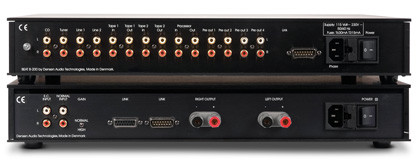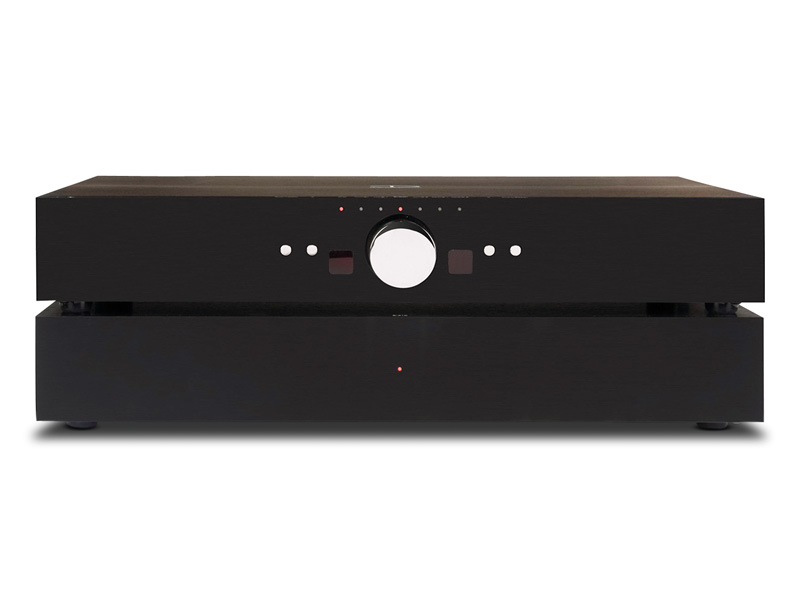TechRadar Verdict
Pros
- +
Good sense of scale
- +
Well-judged balance
- +
Flexible preamp
Cons
- -
Treble character can be actively off-putting for some
Why you can trust TechRadar
There's no denying that the Densen B200 and B310 pre and power amplifier combination look uncommonly smart and timeless with their perfectly rectangular looks.
And also worthy of honourable mention is the impressive remote control, all metal and streets ahead of most of its breed.
The basic specification isn't too unusual, the power amp putting out a notional 80 watts into the usual eight-ohm load, while the preamp has effectively six line inputs.
There's an unusually prolific array of phono sockets, though, not least because there are no less than four preamp outputs. There are also two record outputs and a processor in/out loop. Vinyl lovers can add an internal phono stage, converting one line input to phono.
Pre-amplifying circuitry uses surface-mounted discrete transistors, arranged as neatly as soldiers on parade, with good-quality passive components and twin power transformers.
In the B-310 power amp, a large toroidal mains transformer dominates the case, while most active components are again surface-mounted. Large output transistors are thermally coupled to the base, relying on the case itself as a heatsink.
Gain is switchable between high and low settings, allowing for passive preamps. The unit is easily upgradeable to drive loudspeakers via Densen's 'SAXO' active crossover – the firm has long expounded the virtues of active driving.
Sign up for breaking news, reviews, opinion, top tech deals, and more.
Sound quality

Despite increasing similarities in technical performance between brands and models, it's still often possible to put a finger on a distinct sonic character in a piece of audio electronics.
In this case, there's something about the treble that makes the sound large, crisp and just a little bright. At best, it comes across as lively and attractive, making the most of musical dynamics and contrasts, with images that spread across the soundstage in a highly believable manner. It's easy to pick out details if one wants to, but the big picture is not sacrificed and there's plenty of opportunity to revel in the scale of a large orchestra or rock band.
Voices do well, most notably when there are several of them, with good individual sounds clearly distinguishable one from another. The downside of that treble character is that, for some listeners, it can cause something akin to a 'halo' around the sound; an aura of distortion or upper-harmonic ringing which significantly interferes with musical enjoyment.
Obviously it's not on anything like the scale of bad MP3 coding, for instance (which causes the same effect but in a thoroughly gross way), but it's the kind of thing that can be distracting even at very low levels. But most listeners seem to find the sound merely a shade bright.
It's not always the most energetic rhythmically, but bass is solid and its pitch is clearly defined. We also found the combination notably adept at driving different speakers without changing character.
Follow TechRadar Reviews on Twitter: http://twitter.com/techradarreview
